Related Research Articles
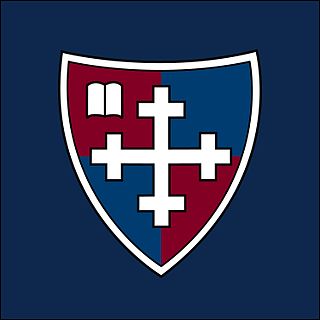
Gordon–Conwell Theological Seminary (GCTS) is an evangelical seminary with its main campus in Hamilton, Massachusetts, and three other campuses in Boston, Massachusetts; Charlotte, North Carolina; and Jacksonville, Florida. According to the Association of Theological Schools, Gordon-Conwell ranks as one of the largest evangelical seminaries in North America in terms of total number of full-time students enrolled.

Maranatha Baptist University is a private Baptist university in Watertown, Wisconsin.

Union Presbyterian Seminary is a Presbyterian seminary in Richmond, Virginia, and Charlotte, North Carolina, offering graduate theological education in multiple modalities: in-person, hybrid, and online.
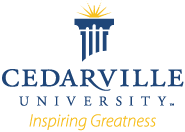
Cedarville University is a private Baptist university in Cedarville, Ohio. It is chartered by the state of Ohio, approved by the Ohio Board of Regents, and accredited by the Higher Learning Commission.
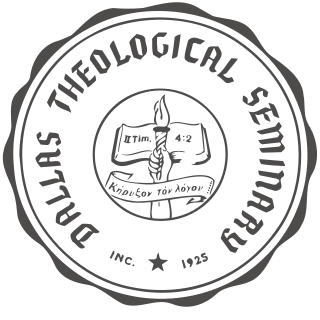
Dallas Theological Seminary(DTS) is an evangelical theological seminary in Dallas, Texas. It is known for popularizing the theological system of dispensationalism. DTS has campuses in Dallas, Houston, and Washington, D.C., as well as extension sites in Atlanta, Austin, San Antonio, Nashville, Northwest Arkansas, Europe, and Guatemala, and a multilingual online education program. DTS is the largest non-denominational seminary accredited by the Association of Theological Schools.

John Tyler Christian (1854–1925) was a Baptist preacher, author and educator.
Tyndale University is a Canadian private interdenominational evangelical Christian university in Toronto, Ontario, which offers undergraduate and graduate programs. Tyndale students come from over 40 different Christian denominations.

Covenant Theological Seminary, informally called Covenant Seminary, is the denominational seminary of the Presbyterian Church in America (PCA). Located in Creve Coeur, Missouri, it trains people to work as leaders in church positions and elsewhere, especially as pastors, missionaries, and counselors. It does not require all students to be members of the PCA, but it is bound to promote the teachings of its denomination. Faculty must subscribe to the system of biblical doctrine outlined in the Westminster Standards.
New Orleans Baptist Theological Seminary (NOBTS) is a Baptist theological institute in New Orleans, Louisiana. It is affiliated with the Southern Baptist Convention. Missions and evangelism are core focuses of the seminary.

Cobb Divinity School was a Baptist theological institute. Founded in 1840, it was a Free Will Baptist graduate school affiliated with several Free Baptist institutions throughout its history. Cobb was part of Bates College in Lewiston, Maine, United States from 1870 until 1908 when it merged with the college's Religion Department.

American Baptist College is a private, Baptist college in Nashville, Tennessee, affiliated with the National Baptist Convention, USA. Founded in 1924, its predecessor in black Baptist education was Roger Williams University, a Nashville college begun in the late-19th century and closed in the early 20th century. Upon full accreditation by the American Association of Bible Colleges, ABTS dropped use of the term "Theological Seminary" and renamed itself American Baptist College. The college has an 82% acceptance rate. In Fall 2019, 77% of students were retained after the first year of attendance.

Clear Creek Baptist Bible College (CCBBC) is a private Baptist Bible college in Pineville, Kentucky. It is affiliated with the Kentucky Baptist Convention. CCBBC provides a Bible-based education focusing on Christian service. The college is accredited by the Commission on Colleges of the Southern Association of Colleges and Schools and the Association for Biblical Higher Education. CCBBC was founded by Lloyd Caswell Kelly in 1926.
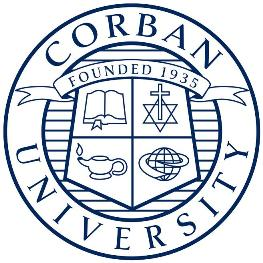
Corban University is a private Christian university in Salem, Oregon. There are about 1,200 full-time students enrolled on the Salem campus and 2,800 worldwide. Athletically, it is a member of the National Association of Intercollegiate Athletics competing in the Cascade Collegiate Conference.
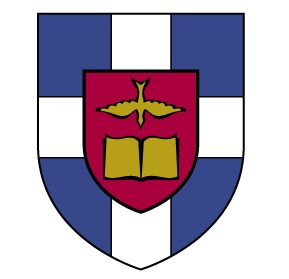
The Southern Baptist Theological Seminary (SBTS) is a Baptist theological institute in Louisville, Kentucky. It is affiliated with the Southern Baptist Convention. The seminary was founded in 1859 in Greenville, South Carolina, where it was at first housed on the campus of Furman University. The seminary has been an innovator in theological education, establishing one of the first Ph.D. programs in religion in the year 1892. After being closed during the Civil War, it moved in 1877 to a newly built campus in downtown Louisville and moved to its current location in 1926 in the Crescent Hill neighborhood. In 1953, Southern became one of the few seminaries to offer a full, accredited degree course in church music. For more than fifty years Southern has been one of the world's largest theological seminaries, with an FTE enrollment of over 3,300 students in 2015.
Duke Kimbrough McCall was an American Christian religious leader who served as Chief Executive Officer of the Southern Baptist Convention (SBC) Executive Committee, as president of two theological seminaries, as president of the Baptist World Alliance, and as a Baptist pastor.
Western Seminary is an interdenominational Evangelical Christian seminary with campuses in Portland, Oregon; San Jose, California; and Sacramento, California. Western Seminary also has online-only degrees and programs and provides non-credit classes through the Center for Leadership Development.

Boyce College is a private, Christian college located in the Crescent Hill neighborhood of Louisville, Kentucky. It is affiliated with the Southern Baptist Theological Seminary. It receives its accreditation from the Southern Association of Colleges and Schools and the Association of Theological Schools in the United States and Canada.

Timothy Lin was a China-born pastor and Old Testament scholar. He served as senior pastor of the First Chinese Baptist Church of Los Angeles (1962–1980) and as the president of China Evangelical Seminary in Taipei, Taiwan (1980–1990).

Hood Theological Seminary is a Christian seminary sponsored by the African Methodist Episcopal Zion Church in Salisbury, North Carolina. It is a graduate and professional school sponsored by the African Methodist Episcopal Zion Church and approved by the University Senate of The United Methodist Church. From its founding in 1879 until 2001, the seminary was part of Livingstone College; it is now independent. The seminary is accredited by the Association of Theological Schools in the United States and Canada.
Acharya A. B. Masilamani or Abel Boanerges Masilamani (1914–1990) was a Golden Jubilee Baptist pastor and evangelist on whom parallels had been drawn comparing his ecclesiastical ministry with that of Saint Paul. The Mar Thoma Syrian Church, one of the Saint Thomas Christian Churches founded by Thomas the Apostle in the first century which holds the annual Maramon Conventions used to have Masilamani preach at its conventions since the 1970s. During one such Maramon Convention held in 1983 at Maramon, Masilamani was one of the main speaker who spoke on Christology in the presence of the two patriarchs of the Mar Thoma Church, Alexander Mar Thoma and Thomas Mar Athanius.
References
- ↑ "Home". www.faith.edu. Retrieved 2016-09-12.
- ↑ "Home". www.faith.edu. Retrieved 2020-10-07.
- ↑ Patten, Dr. John L. For the Truth's Sake: A History of Faith Baptist Bible College. Ankeny, IA: Faith Baptist Bible College, c1978, p.7
- ↑ Patten, History, p. 10-11
- ↑ Patten, History, p. 10-11
- ↑ Patten, History, p. 13
- ↑ Patten, History, p. 13, 51
- ↑ Patten, History, p. 20-21, 25
- ↑ Patten, History, p. 40
- ↑ Patten, History, p. 54
- ↑ Patten, History, p. 48
- ↑ Patten, History, p. 52
- ↑ Patten, History, p. 59-60
- ↑ History Page Archived 2007-10-08 at the Wayback Machine . FBBC & TS website.
- ↑ American Association of Christian Colleges and Seminaries Archived 2013-04-30 at the Wayback Machine